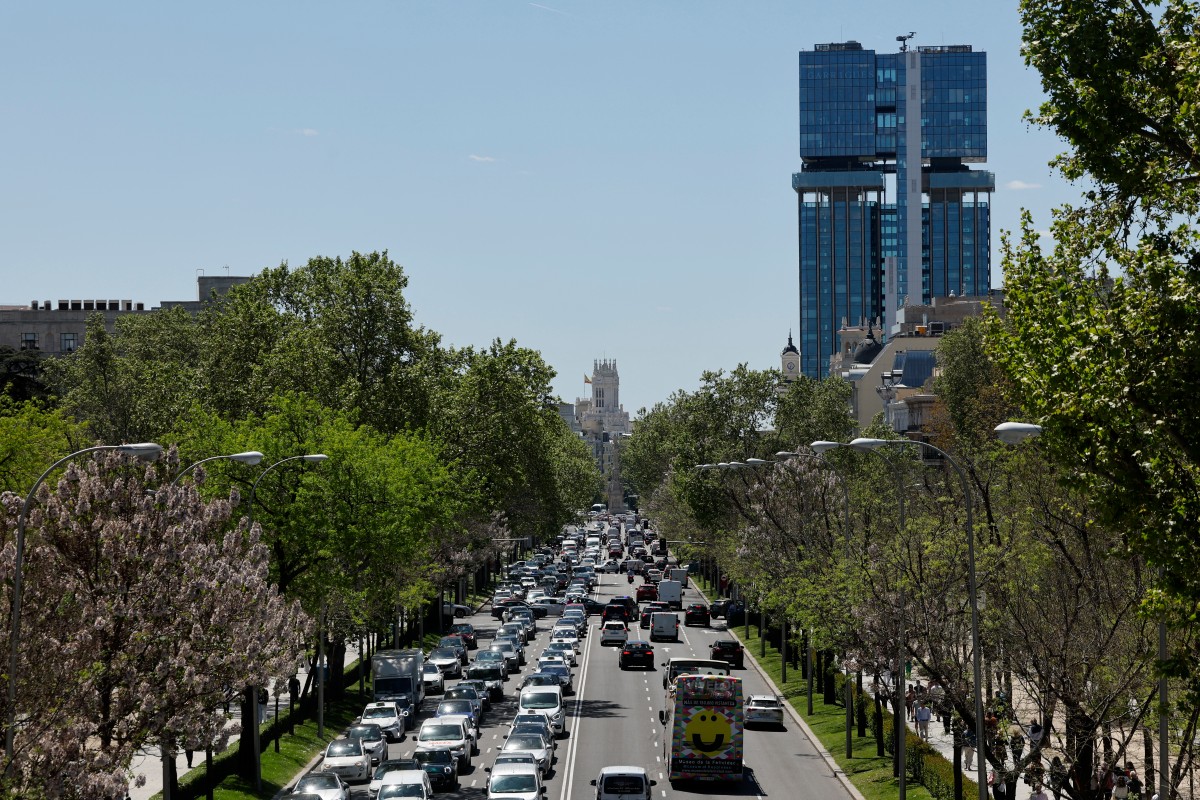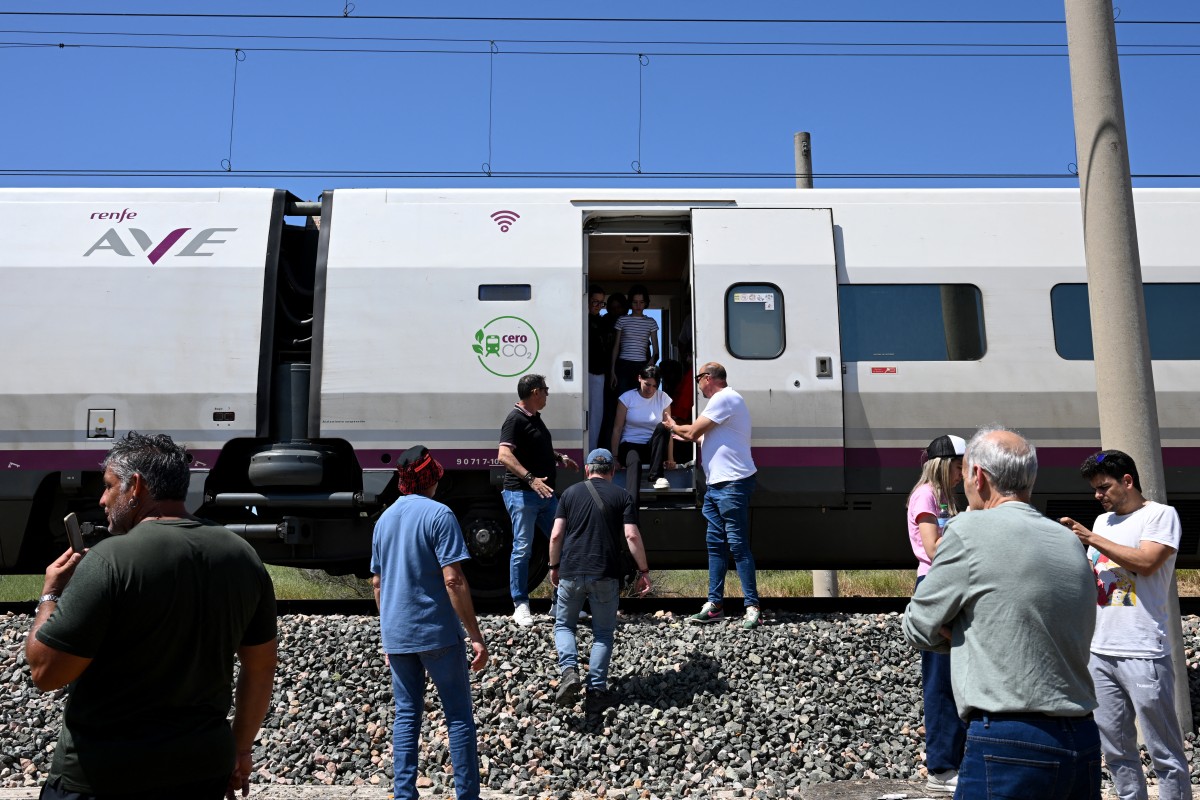Spain power cut LATEST: Power restored to 99 percent of mainland Spain
-----
Millions of people across Spain were left without power on Monday afternoon with authorities asking residents to stay at home.
The cause for the outage, which happened just after midday, was not immediately reported but the chaos it caused was widespread. At around 3pm grid operators warned it could take between six and ten hours to restore power.
"We are looking at between six and 10 hours, if all goes well," Eduardo Prieto, head of Red Electrica, told Cadena Sur radio, adding that several parts of the network "are already repaired".
Trains and metro services were evacuated or halted, and traffic jams are building up as a result of traffic lights not working.
Images posted on social media showed metro stations plunged into darkness, with trains halted, and people in offices and hallways using the light on their phones to see.
The national road authority DGT told motorists to stop driving, because stop lights were out, forcing vehicles to slow to avoid collisions and police officers to direct traffic at intersections.

In Barcelona, police were deployed to help people trapped in train carriages and inside tunnels.
There were reports of shops in Madrid closing early over fears that there may be looting.
Spanish emergency services asked people not to call 112 to not overwhelm the servers.
Any business in Spain without a generator was affected. Card payments were generally working and many ATM machines were out of order for those hoping to withdraw money.
Most hospitals in the country had generators, allowing medical services to continue as normal.
Spain's railway operator Adif said that the power cut halted trains across the entire country, while airports operator Aena said "several incidents" occurred in Spanish airports.
Mobile phone networks went down. AFP reporters in Madrid and Barcelona saw many inhabitants coming out into the streets, holding their smartphones up to try to connect to a network.
There were no reports yet of any accidents or increase in medical emergencies as a result of the apagón, as a blackout is called in Spanish.

The Spanish government called an emergency meeting at La Moncloa to address a plan of action for the blackout.
The country's Interior Ministry asked the public to remain calm. Reports in the Spanish media suggest that some people were stockpiling batteries and other essential supplies.
Many people had to use the radio instead of the inaccessible internet to get news on the situation.
Many traffic lights had ceased to function, forcing vehicles to slow to avoid collisions, while metros and trains were halted. Spain's national road authority DGT urged motorists to stop using the roads.
Part of France and all of Portugal have also been hit by the blackout, Spanish reported.
The head of operations for Spain's grid operator Red Electrica said "we cannot speculate right now on the causes" of the countrywide blackout occurring Monday.
The executive, Eduardo Prieto, added that everything was being done "to shed light" on the origin of the power cut.
The same sources added that "they are analysing the causes and are dedicating all resources to solving it."
Prime Minister Pedro Sánchez visited the Red Eléctrica headquarters to be briefed by officials.
Spain's El Pais newspaper posted photos on its website of stopped metro trains in Madrid, police directing traffic, and its own reporters working in a darkened office by the torchlight.
Massive blackouts have affected other countries around the world in recent years.
Huge outages struck Tunisia in September 2023, Sri Lanka in August 2020, and Argentina and Uruguay in June 2019. In July 2012, India experience a vast blackout.
In Europe, in November 2006, 10 million people were left without power for an hour in France, Germany, Belgium, the Netherlands, Italy and Spain. That was caused by a failure in Germany's grid.

Comments (1)